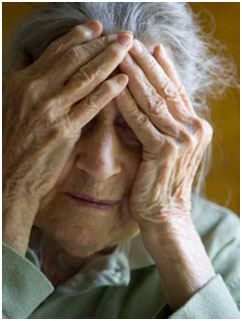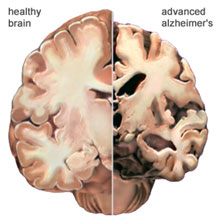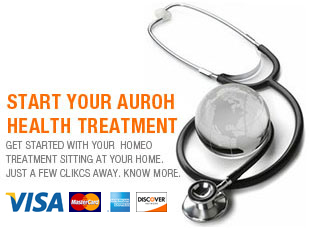|
|
||||||||||||||||||||||||||||||||||||
Disease Conditions
- Abscess
- Acne
- Addiction
- Adenoid Hypertrophy
- Allergic Rhinitis or Hay Fever
- Alopecia Areata
- Alzheimer’s Disease
- Amoebiasis
- Anxiety
- Asthma
- Backache
- Bed-Wetting-Enuresis
- Brain-Tumour
- Cataract
- Cirrhosis of Liver
- Conjunctivitis
- Constipation
- Dengue
- Depression
- Diabetes Mellitus
- Diseases of Prostate
- Eczema
- Epilepsy
- Erectile-Dysfunction
- Gallstones
- Goitre
- Gynaec
- Hepatitis
- Hepatitis-a
- Hepatitis-b
- Hepatitis-e
- Hyperthyroidism
- Hypothyroidism
- IBS - Irritable Bowel Syndrome
- Infertility
- Infertility FAQ
- Male Infertility
- Male Infertility FAQ
- Women Infertility
- Lichen Planus
- Lipoma
- Meningitis
- Menstrual-Disorders
- Migraine
- Molluscum-Contagiosum
- Nasal-Polyps
- Neoplasm
- Nephrotic Syndrome
- Neuralgia
- Osteo Arthritis
- Otitis
- Piles or Hemorrhoids
- Premature-Ejaculation
- Psoriasis
- Rheumatoid Arthritis
- Ringworm
- Schizophrenia
- Sinusitis
- Spondylitis
- Styes
- Tarsal Cyst-Chalazion
- Tonsilitis
- Typhoid
- Urinary-Tract-Infection
- Urticaria
- Vertigo
- Vitiligo
- Warts
Auroh Health Horoscope
Disease A - Z > Alzheimer > Homeopathic treatment for Alzheimer
Homeopathy treatment for Alzheimer
|
||||||||
Alzheimer's disease (AD) is a slowly progressive disease of the brain that is characterized by impairment of memory and eventually by disturbances in reasoning, planning, language, and perception. Many scientists believe that Alzheimer's disease results from an increase in the production or accumulation of a specific protein (beta-amyloid protein) in the brain that leads to nerve cell death.
The likelihood of having Alzheimer's disease increases substantially after the age of 70 and may affect around 50% of persons over the age of 85. Nonetheless, Alzheimer's disease is not a normal part of aging and is not something that inevitably happens in later life. For example, many people live to over 100 years of age and never develop Alzheimer's disease.
 |
Who develops Alzheimer's disease?
The main risk factor for Alzheimer's disease is increased age. As a population ages, the frequency of Alzheimer's disease continues to increase. Ten percent of people over 65 years of age and 50% of those over 85 years of age have Alzheimer's disease. Unless new treatments are developed to decrease the likelihood of developing Alzheimer's disease, the number of individuals with Alzheimer's disease in the United States is expected to be 14 million by the year 2050.
There are also genetic risk factors for Alzheimer's disease. Most patients develop Alzheimer's disease after age 70. However, 2%-5% of patients develop the disease in the fourth or fifth decade of life (40s or 50s). At least half of these early onset patients have inherited gene mutations associated with their Alzheimer's disease. Moreover, the children of a patient with early onset Alzheimer's disease who has one of these gene mutations has a 50% risk of developing Alzheimer's disease.
There is also a genetic risk for late onset cases. A relatively common form of a gene located on chromosome 19 is associated with late onset Alzheimer's disease. In the majority of Alzheimer's disease cases, however, no specific genetic risks have yet been identified.
Other risk factors for Alzheimer's disease include high blood pressure(hypertension), coronary artery disease, diabetes, and possibly elevated blood cholesterol. Individuals who have completed less than eight years of education also have an increased risk for Alzheimer's disease. These factors increase the risk of Alzheimer's disease, but by no means do they mean that Alzheimer's disease is inevitable in persons with these factors. All patients with down syndrome will develop the brain changes of Alzheimer's disease by 40 years of age. This fact was also a clue to the "amyloid hypothesis of Alzheimer's disease"
Why these changes develop in the brain?
Research about these structures has provided clues about why nerve cells die, but scientists have not determined exactly why these changes develop. In short, no one yet knows exactly what causes Alzheimer's disease. Most researchers agree that the cause may be a complex set of factors. Though Alzheimer's disease affects individuals in 40s and 50s, studies have shown that the greatest known risk for developing Alzheimer's is increasing age. As many as 2-4 % of all people of 65 years of age and older have Alzheimer's. As many as 20 % (or more) of population over 85 years age have the AD. A family history of the disease is another known risk. Having a parent or sibling with the disease increases an individual's chances of developing Alzheimer's. Many mysterious diseases have provided interesting clues through genetic studies. Scientists have identified certain genes, which are very strongly related to Alzheimer's.
 |
What are the symptoms of Alzheimer's disease?
The onset of Alzheimer's disease is usually gradual, and it is slowly progressive.
Symptoms include:
- memory loss that affects the person's skills. Short-term memory, or memory of recent events, is particularly affected in individuals who have Alzheimer's disease.
- difficulty doing familiar activities
- misplacing belongings
- poor or decreased judgment
- language deterioration, with difficulty finding the right words
- disorientation to time and place
- changes in mood, including depression
- hallucinations
- delusions
- personality changes, including agitation and irritability
- impaired ability to orient the body to the surrounding space
- a loss of interest in activities that were previously pleasurable
- loss of bowel and bladder control
Sometimes individuals will wander. They can have problems doing complex tasks such as cooking or keeping track of a checkbook.
How is the disease diagnosed?
The diagnosis of Alzheimer's disease is based on a history of increasing memory loss and other cognitive impairments. Changes in behavior, personality, and judgment may also be clues to the disease.
Since there is no definitive test for Alzheimer's disease, it is important to rule out other conditions or diseases that may cause the symptoms. These include the following:
- multiple strokes
- Parkinson's disease, a degenerative nerve disorder that causes tremors and mental decline
- normal pressure hydrocephalus, which is excessive fluid around the brain
- deficiency of B1\ \B2\ \B6\ \pantothenic acid\ \folic acid\ \niacin\ \biotin\ Cobalamin is the general name for vitamin B12. ',CAPTION,'Vitamin B12');" onmouseout="return nd();">vitamin B12
- hypothyroidism, or low levels of thyroid hormone
- alcoholism and drug abuse
- infectious diseases that cause brain degeneration, such as Creutzfeldt-Jakob disease, viral infections, or fungal infections
- poisoning with carbon monoxide or methyl alcohol
- depression
- medication side effects or drug interactions
- brain tumors
The clinical diagnosis of Alzheimer's can be made with an accuracy up to 90% based on these symptoms and the results of a collection of tests.
Prevention & Expectations
What can be done to prevent the disease?
Although there are no proven methods to prevent Alzheimer's disease, recent research findings provide some options that may slow the onset of the disease or the progression of symptoms. These findings, which need further study, include:
- low doses of aspirin and nonsteroidal anti-inflammatory drugs (NSAIDs), which may work by making blood cells and vessels less sticky and improving blood flow
- actively engaging in cognitive activities such as reading, which may increase the nerve connections in the brain and delay the onset of the disease
- taking antioxidants such as Vitamin E and selignine. In the Alzheimer's Disease Cooperative Study, a dose of 1,000 IU of vitamin E and 5 mg of selignine twice daily delayed nursing home placement, loss of the ability to perform self care, and severe dementia.
- hormone replacement therapy for menopausal women, which may delay the onset of symptoms of Alzheimer's disease. The relationship between the hormone estrogen and Alzheimer's disease still needs further investigation.
- avoiding head injuries. A person should wear a seatbelt at all times when riding in a motor vehicle. Sports safety guidelines for children, adolescents, and adults can be helpful in avoiding other head injuries.
What are the long-term effects of the disease?
There is no cure for Alzheimer's disease. The disease is progressive. The symptoms get worse as the disease progresses. From the time the disease is recognized until the person dies is generally about 6 to 8 years, although it can range from less than 2 years to over 20 years.
What are the risks to others?
Alzheimer's disease is not contagious and poses no risk to others.
Treatment:
Alzheimer's disease is difficult disorder. Homeopathy system offers reasonably positive treatment if not cure.
When we discuss the role of medicine for certain diseases, we probably do not talk of the 'cure' in real sense, but more of 'control' and 'relief'. AD is one such condition, where homeopathy has following role to play:
To control the disease process whereby further deterioration of the brain damage is helped to certain extent
To improve to an extent some of the symptoms: communication, failing memory, anxiety, restlessness, etc. Many of the problems associated with dementia such as restlessness, depression, and agitation can be treated effectively and gently with homeopathy. It may also be possible, especially in the early stages of Alzheimer's disease, to improve someone's memory with homeopathic medication. Timely administered homeopathy medicines can prevent further progress of disease.
The homeopathic remedies are prepared from natural substances to precise standards and work by stimulating the body's own healing power.
homeopathy is one such branch of therapeutics, which believes in treating the patient who is diseased and not merely diseased parts of the patients. This holistic approach goes in a long way in the management of various chronic and deep-seated diseases, including Alzheimer's. It goes without saying that every person is unique and dementia affects people differently - no two people will follow exactly the same course. Hence, an approach to dementia care, which recognizes the personal history, character and individuality of the person with Alzheimer's, has been shown to have a positive impact on the progress of the disease.
At Auroh we undertake study of each Alzheimer's as separate entity and do in-depth evaluation of the disease as well as patient as person. It means, we understand the patient and his/her problems more deeply, with regards to its symptoms, its diagnosis as well as its probable genetic background. The study also involves deep evaluation of the mind and emotions. After appreciating the patients in his totality, a suitable medicine called as 'constitutional medicine' is selected for the patient. The medication based on such foundation brings deeper level healing process for the sufferers of chronic diseases.
| talk to our doctors right now |  |
|
| consult our experts | ||
 |
leave your number we will call you back |
|
| start auroh health treatment |
Your doctor is just a click away |
Treatment |










